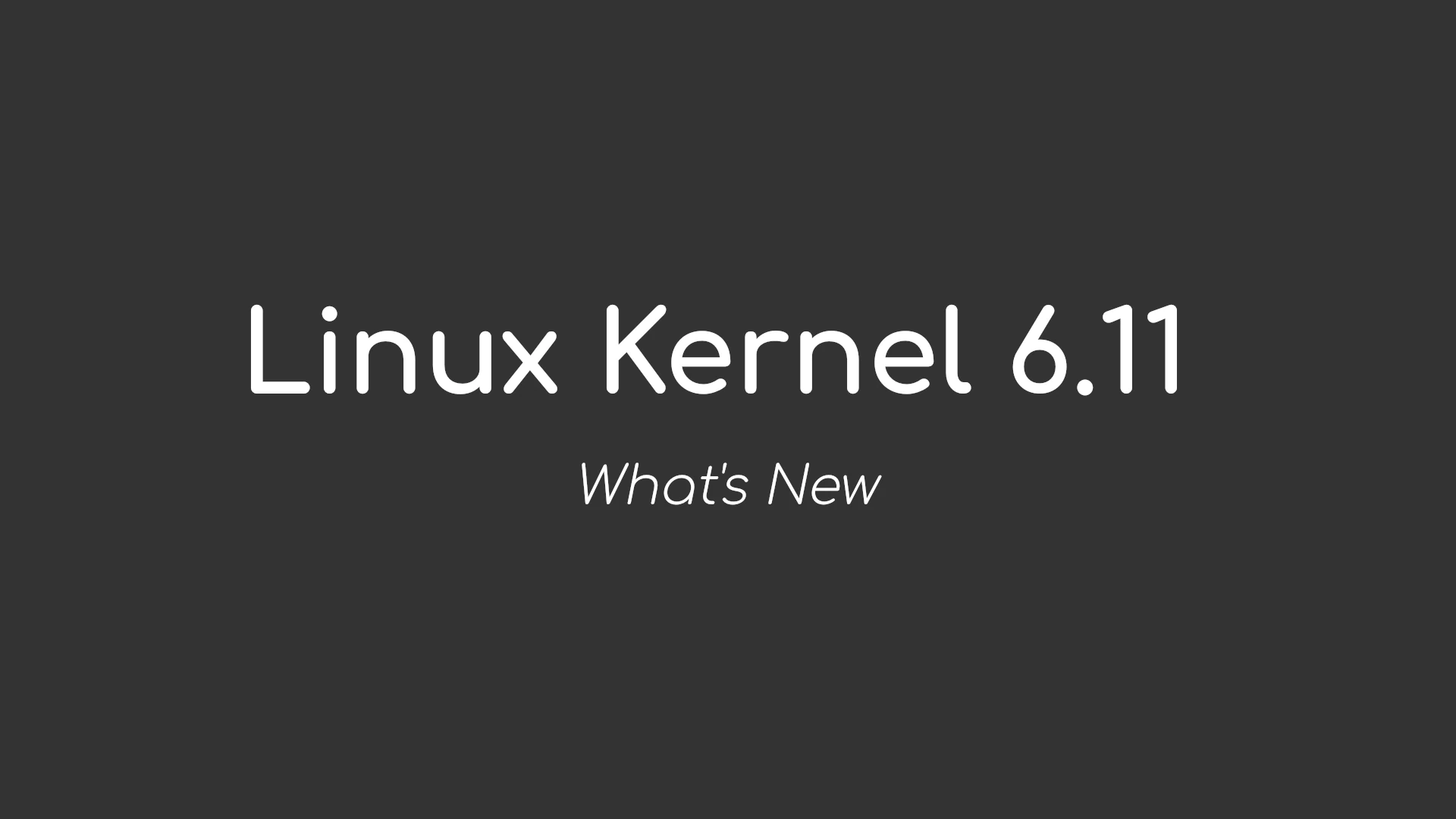Linus Torvalds announced today the release and general availability of Linux kernel 6.11, the latest stable version of the Linux kernel that introduces several new features and improvements.
Highlights of Linux Kernel 6.11 include a new driver subsystem to enable support upstream for Bluetooth/WLAN chips on Qualcomm platforms, getrandom() support to vDSO on x86 systems adding a new kind of mapping to mmap(2) that lets the kernel zero out pages anytime under memory pressure, virtual CPU hotplug support for AArch64 (ARM64) ACPI systems, and a new mechanism to create interrupt domains.
Also new is a dmaengine_prep_peripheral_dma_vec() function to support transfers using dma vectors and documentation and user in AXI dma, along with STMicro STM32 DMA3 support, support for a minimum version for the Rust toolchain, support for the Arrow Lake and Lunar Lake CPU platforms, Loongson-3 CPUFreq driver support, fast CPPC support in the amd-pstate cpufreq driver, and hwmon interface support to the ACPI fan driver.
On top of that, Linux kernel 6.11 updates KVM support for the LoongArch architecture with ParaVirt steal time support, perf kvm-stat support, and some VM migration enhancements, enables KVM halt poll shrinking by default, rewrites the disk accounting scheme for the bcachefs file system to store accounting as normal btree keys, and implements NFS server-side support for the new pNFS NVMe layout type.
Rust-based block drivers, a specialized allocator designed to thwart heap-spraying attacks, and preliminary support for AMD’s SEV-SNP, a secure encrypted virtualization technology, are among the features of the new release. Linux Kernel 6.11, this release also introduces Rust-based firmware loading abstraction, along with enhancements in memory hotplug and STACKLEAK protection specifically for the RISC-V architecture.
The 6.11 version of the Linux kernel also introduces a unified VMware hypercall API layer which facilitates API support for confidential computing solutions, institutes a new mechanism for background block group reclaim, enables automatic cgroup removal upon subvolume deletion, and integrates new ‘rescue=’ mount options for the Btrfs file system. Additionally, it includes NUMA support for RISC-V ACPI-based systems and boasts numerous updated and newly supported drivers for improved hardware integration.
The Linux kernel 6.11 is set to be a short-term release with support lasting only a few months. It is anticipated to be followed by Linux kernel 6.12, which Linus Torvalds has opened for merging and is expected to be the forthcoming long-term supported (LTS) kernel, projected for release around mid to late November 2024.
The Linux kernel 6.11 is available for download directly from the Linus Torvalds’ git tree or from the kernel.org website. However, it is advisable to await the arrival of Linux 6.11 in your distribution’s stable software repositories before proceeding with an update.
What are the new features and enhancements of Linux Kernel 6.11?
- Bluetooth/WLAN Support for Qualcomm Platforms
- A new driver subsystem has been added to support Qualcomm Bluetooth/WLAN chips, bringing upstream support to these widely used platforms.
- getrandom() Support to vDSO (x86 systems)
- Adds support for the getrandom() system call to the vDSO (Virtual Dynamic Shared Object) on x86 systems, enabling faster random number generation.
- Memory Pressure Handling with mmap(2)
- Introduces a new memory mapping type in mmap(2), which allows the kernel to zero out pages when the system is under memory pressure, improving memory management.
- Virtual CPU Hotplug for AArch64 ACPI Systems
- Adds virtual CPU hotplug support for AArch64 (ARM64) ACPI systems, improving flexibility in managing virtual CPU resources in ARM-based systems.
- Interrupt Domains Mechanism
- A new interrupt domains mechanism has been introduced, improving the handling and isolation of interrupts in systems with complex hardware.
What are the security and virtualization improvements of Linux Kernel 6.11?
- Rust-based Features
- Introduction of Rust-based block drivers and a specialized allocator to protect against heap-spraying attacks, improving security in kernel operations.
- AMD SEV-SNP support added, enabling secure encrypted virtualization, a key feature for confidential computing.
- KVM (Kernel-based Virtual Machine) Updates
- KVM support for LoongArch architecture added, along with enhancements in perf kvm-stat and VM migration capabilities.
- KVM halt poll shrinking is enabled by default, optimizing virtualization performance.
- NFS Server-side Support for pNFS NVMe
- Implements server-side support for the new pNFS NVMe layout type, enhancing the performance of NFS servers.
What are the other notable features of Linux Kernel 6.11?
- VMware Hypercall API Layer
- A unified VMware hypercall API layer has been introduced to facilitate integration with confidential computing solutions, providing enhanced security in virtualized environments.
- NUMA Support for RISC-V ACPI Systems
- NUMA (Non-Uniform Memory Access) support has been added for RISC-V ACPI-based systems, improving memory access performance in these architectures.
ColoCrossing excels in providing enterprise Colocation Services, Dedicated Servers, VPS, and a variety of Managed Solutions, operating from 8 data center locations nationwide. We cater to the diverse needs of businesses of any size, offering tailored solutions for your unique requirements. With our unwavering commitment to reliability, security, and performance, we ensure a seamless hosting experience.
For Inquiries or to receive a personalized quote, please reach out to us through our contact form here or email us at sales@colocrossing.com.

